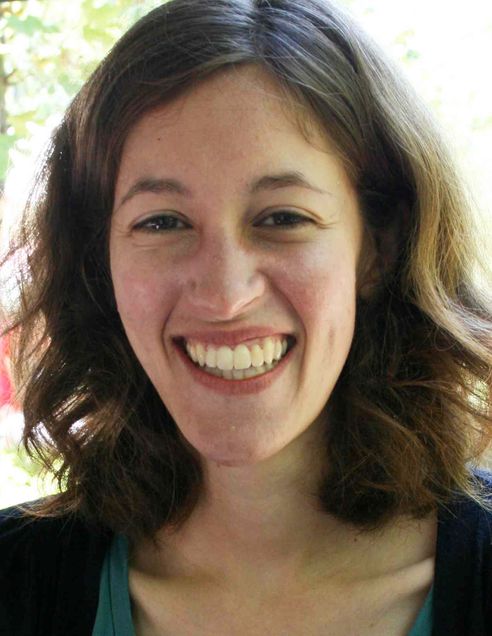By Abby Van Selous (COM’24)

Assistant Professor of Psychological & Brain Sciences Rachel Denison has been interested in how the brain creates our experiences since she was 12 years old.
It started when she was watching an episode of Scientific American Frontiers with host Alan Alda.
“They were doing an episode about neuroscience and psychology with classic demonstrations showing that we don’t see everything in the way we think we do, and how we can have false memories,” Denison said.
Her interest in neuroscience grew as she learned and read more about the subject, and she ultimately honed her interest down to the fundamental problem of how our brains give us our experiences and impressions of the world.
Today, she runs the Denison Lab, researching how the brain determines if and how we see something, how it integrates different pieces of visual information together to create one coherent experience, and how visual information is processed, despite various potential visual input changes. Denison also focuses on how the brain deals with dynamic and constantly changing visual information and how attention works, specifically what parts of a visual scene are prioritized over others.
“Let’s say you’re driving and you’re attending to a road sign on the right, you’re going to see that road sign very well but you can miss other things that are happening on the left,” Denison explained. “Your attention is focused on one thing, and that causes you to miss or ignore other things.”
The Denison Lab conducts its experiments with human test-subjects who are shown various visual images and short movies. Depending on the study, several measurements are taken, including measurements of their decisions about what they saw, their eye position and pupil size when they look at the dynamic displays, and their brain activity recorded with fMRI or EEG machines. One of the lab’s goals is to create a predictive neural model showing how perception and attention unfold over time.
Denison and her fellow researchers recently discovered that when people pay attention at a specific moment in time, they can see better at that time than they can right before and right after these specific moments.
“It’s as though you can’t fully process all the information that’s coming dynamically into your eyes,” she said. “You have to pick the moment that you want to prioritize, and then you lose information around that time.”
The difference between seeing better or seeing worse can come down to a mere fraction of a second. If there are two occurrences about a second apart you should be able to deal with both of them individually, but if they occur closer together, this becomes difficult, if not impossible, to do, affecting the visual details that you are able to perceive.
“Our perceptual experience is dynamic, it’s very cinematic,” Denison said. “It’s like a movie, we have this very rich, continuous, ongoing experience and there’s a question of how the brain constructs that evolving experience for us.”
Since the brain isn’t an instantaneous record, it takes time for information to flow through and be processed in the visual system and other areas of the brain. It is still a puzzle how the brain creates our coherent and seamless cinematic experiences of the world.
“It’s not as simple as just taking a picture every second and stitching it together,” Denison said. “We know that it’s not quite like a movie camera that just records frame after frame.”
Denison is also excited by questions concerning AI and what it means to be human. For example, research is currently being conducted by multiple labs comparing human brains to deep neural networks in an attempt to figure out how the mechanisms that humans use to accomplish a task compare to the mechanisms that AI uses.
“I think that process can really help us by giving us insight into how our brains work,” she said. “It drives us to ask different questions and learn new kinds of information about how our brains work and how we work, and how we can do what we do and be what we are.”
Denison is one of four panelists for the 2023 Gitner Family Lecture, “What Does It Mean to Be Human in a World of AI?”